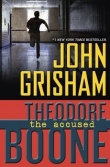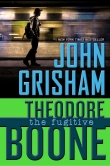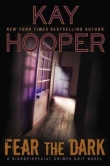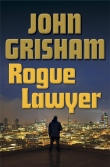
Текст книги "Gray Mountain"
Автор книги: John Grisham
Соавторы: John Grisham
Жанры:
Политические детективы
,сообщить о нарушении
Текущая страница: 14 (всего у книги 27 страниц)
19
Samantha skipped the office on Wednesday morning and left town as the school buses were making their rounds, which was not a good idea. Traffic on the twisting highway crept along, stopping and waiting while oblivious and sleep-deprived ten-year-olds, sagging under bulky backpacks, took their sweet time boarding. Across the mountain and into Kentucky, the buses disappeared and the coal trucks clogged the roads. After an hour and a half, she approached the small town of Madison, West Virginia, and stopped, as directed, at a country store under a faded Conoco sign. Buddy Ryzer was at a table in the rear, sipping coffee and reading a newspaper. He was thrilled to see Samantha and introduced her to one of his buddies as “my new lawyer.” She accepted this without comment and produced a file with authorizations allowing her to obtain all of his medical records.
In 1997, before he filed his claim against Lonerock Coal, Buddy went through a routine physical exam. An X-ray revealed a small mass on his right lung. His doctor was certain it was benign, and he was right. In a two-hour operation, he removed the mass and sent Buddy and Mavis home with the good news. Since the operation had nothing to do with his subsequent claim for black lung benefits, it was not mentioned again. Mattie felt it was imperative to gather all medical records, thus Samantha’s trip to Madison. Her destination was the hospital in Beckley, West Virginia, a town of twenty thousand.
Buddy followed her to her car, and when they were finally alone she politely informed him that they were still just investigating. No decision had been made about accepting him as a client. They would review the file, and so forth. Buddy said he certainly understood, but he was clearly on board. Telling him no would be painful.
She headed to Beckley, an hour’s drive through the heart of coal country and ground zero for mountaintop removal. There was so much dust in the air she wondered if a motorist passing through might contract black lung. Without too much trouble, she found the hospital in Beckley, and worked her way through its layers until she found the right clerk in Records. She filled out request forms, handed over authorizations signed by Mr. Ryzer, and waited. An hour passed as she e-mailed everyone she could think of. She was in a cramped, windowless room with no ventilation. Another half hour passed. A door opened, and the clerk pushed a cart through it. A small box was on the cart, and this was a relief. Maybe it wouldn’t take forever to review the records.
The clerk said, “Mr. Aaron F. Ryzer, admitted on August 15, 1997.”
“That’s it. Thank you.” The clerk left without another word. Samantha removed the first file and was soon lost in an incredibly mundane hospital stay and surgery. It appeared that the pathologist who wrote the reports was not aware the patient was a miner, nor did he look for signs of black lung. In its early stages, the disease is not readily apparent, and at that point, in August 1997, Buddy was showing symptoms but had not filed his claim. The doctor’s job had been straightforward—remove the mass, make sure it was benign, sew him up, and send him home. There was nothing remarkable about the surgery or Buddy’s stay in the hospital.
Two years later, after Buddy had filed his black lung claim, the attorneys for Casper Slate entered the picture as they were combing through his medical history. She read their initial letters to the pathologist in Beckley. They had stumbled across the 1997 surgery, where they found a collection of slides of the lung tissue. They asked the doctor to send the slides to two of the firm’s favorite experts, a Dr. Foy in Baltimore and a Dr. Aberdeen in Chicago. For some reason, Dr. Foy copied the pathologist in Beckley with a finding that the tissue revealed pneumoconiosis, or complicated black lung disease. Since the pathologist was no longer involved in Buddy’s treatment, he did nothing with this information. And because Buddy did not have a lawyer at the time, no one working on his behalf had ever reviewed the records that Samantha was now holding.
Samantha took a deep breath. She sat down with the report, and slowly walked through it again. At that moment, it looked as though Casper Slate lawyers, in early 2000, learned from at least one of their own experts that Buddy had had black lung disease since 1997, yet they fought his claim and eventually prevailed.
He did not receive benefits, but went back to the mines while Casper Slate lawyers buried their crucial evidence.
She roused the clerk, who reluctantly agreed to make a few copies, at half a dollar a page. After three hours in the bowels of the hospital, Samantha saw sunlight and made her escape. She drove around town for fifteen minutes before spotting the federal building, where, seven years earlier, Buddy Ryzer had presented his case to an administrative law judge. His only advocate had been Mavis. Across the room, they had faced a phalanx of expensive Castrate lawyers who toiled daily in the murky world of the federal black lung system.
As Samantha entered the empty lobby of the building, she was practically strip-searched by a couple of bored guards of some nameless variety. A directory by the elevators led her to a file room on the second floor. A clerk, obviously federally tenured and protected, eventually asked what she wanted. She was looking for a black lung file, she explained as politely as possible. Of course her paperwork was not in order. The clerk frowned and acted as though a crime had been committed. He produced some blank forms and rattled off instructions about how one must properly access such a file; it required two signatures from the claimant. She left with nothing but frustration.
At nine the following morning, Samantha again met Buddy at the Conoco station in Madison. He was excited to see his lawyer for the third day in a row, and introduced her to Weasel, the guy who owned the store. “All the way from New York,” Buddy said proudly, as if his case was so important heavyweight legal talent had to be imported. When the paperwork was complete and perfect, she said good-bye and drove back to the courthouse in Beckley. The armed warriors who had so bravely guarded the front lobby on Wednesday were evidently off fishing on Thursday. There was no one to fondle and grope her. The metal detector was unplugged. Clever terrorists monitoring Beckley had only to wait until Thursdays to thwart Homeland Security and blow up the building.
The same clerk examined her forms and searched vainly for a reason to reject them, but he found nothing to nitpick. She followed him to a massive room lined with metal file cabinets filled with thousands of old cases. He punched buttons on a screen; machines hummed as shelves moved. He opened the drawer and extracted four large expandable files. “You can use one of those tables,” he said, pointing, as if he owned them. Samantha thanked him, unloaded her briefcase, made her nest, and kicked off her shoes.
Mattie, too, was shoeless late Thursday afternoon when Samantha returned to the office. Everyone else was gone and the front door was locked. They went to the conference room so they could watch the traffic on Main Street as they talked. Throughout her thirty-year career as a lawyer, and especially the last twenty-six years at the clinic, Mattie had repeatedly butted heads with the boys (always men—never women) at Casper Slate. Their brand of aggressive advocacy often went even further, into the realm of unethical conduct, perhaps even criminal behavior. About a decade earlier, she had taken the extreme measure of filing an ethics complaint against the firm with the Virginia bar association. Two Castrate lawyers were reprimanded, nothing serious, and when it was all over it had not been worth the trouble. In retaliation, the firm targeted her whenever possible and backstabbed even more fiercely when defending one of her black lung cases. Her clients suffered, and she regretted challenging the firm head-on. She was quite aware of Dr. Foy and Dr. Aberdeen, two renowned and eminently qualified researchers who’d been purchased by the coal companies years ago. The hospitals where they worked received millions in research grants from the coal industry.
As jaded as Mattie was toward the law firm, she was still surprised at Samantha’s discovery. She read the copy of Dr. Foy’s report to the pathologist in Beckley. Oddly enough, neither Foy nor Aberdeen was mentioned in the Ryzer hearing. Foy’s medical report was not submitted; rather, the lawyers at Casper Slate used another slew of doctors, none of whom mentioned the findings of Dr. Foy. Had they been told of these findings? “Highly unlikely,” was Mattie’s prediction. “These lawyers are known for concealing evidence that’s not helpful to the coal company. It’s safe to assume that both doctors saw the lung tissue and arrived at the same conclusion: that Buddy had complicated black lung disease. So the lawyers buried it and found more experts.”
“How can you just bury evidence?” Samantha asked, a question she’d been repeating to herself for many hours.
“It’s easy for these guys. Keep in mind this happens before an administrative law judge, not a real federal judge. It’s a hearing, not a trial. In a real trial there are strict rules regarding discovery and full disclosure; not so in a black lung hearing. The rules are far more relaxed, and these guys have spent decades tweaking and manipulating the rules. In about half the cases, the miner, like Buddy, has no lawyer, so it’s really not a fair fight.”
“I get that, but tell me how the lawyers for Lonerock Coal could know for a fact that Buddy had the disease as early as 1997, then cover it up by finding the other doctors who testified, under oath, that he was not suffering from black lung.”
“Because they’re crooks.”
“And we can’t do anything about it? Sounds like fraud and conspiracy to me. Why can’t they be sued? If they did it to Buddy Ryzer, you can bet they’ve done it to a thousand others.”
“I thought you didn’t like litigation.”
“I’m coming around. This is not right, Mattie.”
Mattie smiled and enjoyed her indignation. We’ve all been there, she thought. “It would be a massive effort to take on a law firm as powerful as Casper Slate.”
“Yes, I know that, and I know nothing about litigation. But fraud is fraud, and in this case it would be easy to prove. Doesn’t proving fraud pave the way to punitive damages?”
“Perhaps, but no law firm around here will sue Casper Slate directly. It would cost a fortune, take years, and if you got a big verdict you couldn’t keep it. Remember, Samantha, they elect their Supreme Court over in West Virginia, and you know who makes the biggest campaign contributions.”
“Sue them in federal court.”
Mattie pondered this for a moment and finally said, “I don’t know. I’m no expert on that type of litigation. You’ll have to ask Donovan.”
There was a knock on the door but neither made a move. It was after six, almost dark, and they were simply not up to another drop-in. Someone knocked again, then went away. Samantha asked, “So how do we proceed with his claim for benefits?”
“Are you taking his case?”
“Yes. I can’t walk away from it knowing what I do now. If you’ll help me, I’ll file it and go to war.”
“Okay, the first few steps are easy. File the claim and wait for a medical exam. After you receive it, and assuming it says what we expect, you’ll wait about six months for the district director to award benefits, which are about $1,200 a month now. Lonerock will appeal the award, and the real war begins. That’s the usual routine. However, in this case we’ll ask the court to reconsider in light of new evidence and seek benefits dating back to his first claim. We’ll probably win that too, and Lonerock will no doubt appeal.”
“Can we threaten the company and its lawyers with exposure?”
Mattie smiled and seemed amused by her response. “Some people we can threaten, Samantha, because we’re lawyers and our clients are right. Others we leave alone. Our goal is to get as much money as possible for Buddy Ryzer, not to crusade against crooked lawyers.”
“It seems like a perfect case for Donovan.”
“Then ask him. By the way, he wants us to stop by for a drink. All the testimony is in and the jury should get the case by noon tomorrow. According to him, things have gone his way and he’s feeling very confident.”
“No surprise there.”
They were sipping whiskey around a cluttered table upstairs in the war room, with coats off, ties undone, the looks of weary warriors, but smug ones nonetheless. Donovan introduced Samantha to his younger brother, Jeff, while Vic Canzarro fetched two more crystal tumblers from a shelf. To her recollection, Samantha had never tasted a brown liquor, straight up. There could have been a few, heavily mixed into a concoction at a frat party, but she had not been aware of it. She preferred wine and beer and martinis, but had always shied away from the brown stuff. At that moment, though, there were no options. These boys were enjoying their George Dickel straight, no ice.
It burned her lips and scalded her tongue and set fire to her esophagus, but when Donovan asked, “How is it?” she managed a smile and said, “Fine.” She smacked her lips as if she’d never tasted anything so delicious while vowing to pour it down the drain as soon as she could find a restroom.
Annette was right. Jeff was at least as cute as his older brother, had the same dark eyes and long unruly hair, though Donovan had tidied up a bit for his jury. Jeff wore a coat and tie, but also jeans and boots. He was not a lawyer, indeed according to Annette he had flunked out of college, but according to Mattie he worked closely with Donovan and did a lot of his dirty work.
Vic had spent four hours on the witness stand the day before, and he was still amused by his arguments with Strayhorn Coal’s lawyers. One story led to another. Mattie asked Jeff, “What’s your take on the jury?”
“They’re all in,” he said without hesitation. “Maybe with one exception, but we’re in good shape.”
Donovan said, “They offered half a million bucks to settle this afternoon, after the last witness. We got ’em on the run.”
Vic said, “Take the money, you idiot.”
Donovan asked, “Mattie, what would you do?”
“Well, a half a million is not much for two dead boys, but it’s a lot for Hopper County. No one on that jury has ever seen such a sum, and they’ll have a hard time handing it over to one of their own.”
“Take it or roll the dice?” Donovan asked.
“Take it.”
“Jeff?”
“Take the money.”
“Samantha?”
Samantha was breathing through her mouth, trying to extinguish the flames. She licked her lips and said, “Well, two weeks ago I couldn’t spell ‘lawsuit,’ now you want my advice on whether or not to settle one?”
“Yes, you have to vote, or we’ll cut off the booze.”
“Please do. I’m just a lowly legal aid lawyer, so I’d take the money and run.”
Donovan took a small sip, smiled, and said, “Four against one. I love it.” Only one vote counted, and it was clear the case would not be settled. Mattie asked, “What about your closing argument? Can we hear it?”
“Of course,” he said, jumping to his feet, straightening his tie, and placing his tumbler on a shelf. Along one side of the long table, he began to pace, staring at his audience like a veteran stage actor. Mattie whispered to Samantha, “He likes to practice on us when we have the time.”
He stopped, looked directly at Samantha, and began, “Ladies and gentlemen of the jury, a pile of money will not bring back Eddie and Brandon Tate. They’ve been dead now for nineteen months, their lives crushed out of them by the men who work for Strayhorn Coal. But money is all we have to measure damages in cases like this. Cold hard cash, that’s what the law says. It’s now up to you to decide how much. So let’s start with Brandon, the younger of the two, a frail little boy, only eight years old and born two months premature. He could read by the time he was four and loved his computer, which by the way was under his bed when the six-ton boulder arrived. The computer, too, was found mangled and without power, as dead as Brandon.”
He was smooth without being showy. Sincere, without a hint of anything but sincerity. He had no notes and didn’t need them. Samantha was immediately captivated and would have given him any sum of money he asked for. He was pacing back and forth, very much onstage and fully in command of his script. At one point, though, Mattie startled them with “Objection, you can’t say that.”
Donovan laughed and said, “My apologies, Your Honor. I’ll ask the jurors to disregard what I just said, which of course is impossible and that’s why I said it in the first place.”
“Objection,” Mattie said again.
There were no wasted words, no hyperbole, no flowery quotations from the Bible or Shakespeare, no false emotions, nothing but a carefully nuanced argument in favor of his client, and against an awful company, all delivered effortlessly, spontaneously. He suggested the amount of $1 million per child, and $1 million in punitive damages. Three million total, a large sum to him, and certainly to the jurors, but a drop in the bucket for Strayhorn Coal. Last year, the company’s gross income was $14 million a week.
When he finished, that particular jury was already in his pocket. The real one would not be as easy. As Vic poured more whiskey, Donovan challenged them to pick apart his closing argument. He said he would be up all night revising it. He claimed the whiskey loosened his creative thoughts, and some of his best final summations were the result of a few hours of thoughtful sipping. Mattie argued that $3 million was too much. It might work in larger cities but not in Hopper County, or Noland County for that matter. She reminded him that neither county had ever seen a million-dollar verdict, and he reminded her that there was a first time for everything. And, no one could create a better set of facts, facts he had just clearly and masterfully laid out before the jury.
Back and forth, back and forth. Samantha excused herself and went to the restroom. She poured the whiskey down the drain and hoped she never encountered it again. She said good night, wished Donovan all the luck in the world, and drove to the Starlight Motel, where the Booker family was enjoying an extended stay. She had cookies for the kids and two romance novels for Pamela. While Mandy and Trevor toyed with their homework, the women eased outside, where they leaned on the hood of Samantha’s Ford and talked business. Pamela was excited because a friend had found a small apartment in Colton, just $400 a month. The kids were falling behind in school, and after three nights at the motel she was ready to move on. They decided to leave early on the next morning, take the kids to school, and look at the apartment. Samantha would do the driving.
20
After two weeks in Brady, or more accurately three weeks away from Scully & Pershing, Samantha’s sleep deprivation had been thoroughly exorcised and she was back to her old habits. At 5:00 on Friday morning, she was sipping coffee in bed and hammering out a three-page memo on the subject of Buddy Ryzer’s black lungs and Casper Slate’s fraudulent behavior in screwing him out of benefits. At 6:00, she e-mailed it to Mattie, Donovan, and her father. Marshall Kofer’s reaction was something she was eager to hear.
Another big lawsuit was the last thing on Donovan’s mind, and her intent was not to pester him on this momentous day. She was simply hoping he might find the time over the weekend to read about Mr. Ryzer and pass along his thoughts. Ten minutes later, she received his thoughts. His e-mail read: “I have battled with these slimeballs tooth and nail for the past 12 years, and I hate them with a passion. My fantasy trial is a huge courtroom showdown against Castrate, a grand exposé of all their sins. I love this case! Let’s talk later. Off to war in Colton. Should be fun!!”
She replied: “Will do. Best of luck.”
At 7:00, she drove to the Starlight Motel and gathered up the Bookers. Mandy and Trevor were dressed in their best and eager to get back to school. As Samantha drove, they ate her doughnuts and chattered nonstop. Again, the line between lawyering and social work was getting blurred, but it didn’t matter. According to Mattie, in addition to providing legal advice, the job often included marriage counseling, carpooling, cooking, job searching, tutoring, financial advising, apartment hunting, and babysitting. She was fond of saying, “We don’t work by the hour, but by the client.”
Outside the school in Colton, Samantha stayed in the car while Pamela went inside with her children. She wanted to say hello to the teachers and explain things. Samantha had sent daily e-mails to the school, and the teachers and principal had been supportive.
With the kids securely in place back where they belonged, Samantha and Pamela spent the next two hours looking into the rather sparse selection of rental housing in and around Colton. The apartment Pamela’s friend had gushed on about was only a few blocks from the school and one of four units in a run-down commercial building that had been partially converted. The place was clean enough, with a few sticks of furniture, which was important because Pamela had none. It was priced at $400 a month, which seemed reasonable given its condition. As they left, Pamela said, with no enthusiasm at all, “I guess we could live there.”
Mattie’s slush fund was good for a couple of months only, though Samantha did not divulge this. She gave the accurate impression that money was tight and that Pamela needed to find work as soon as possible. No hearing on the garnishment order had been set; in fact, Samantha had not heard a word from the defendant, Top Market Solutions. She had called the lamp factory twice to make sure Mr. Simmons was in a semi-pleasant mood and that Pamela could still get her job back as soon as the garnishment went away. Prospects for other employment in Hopper County were dim.
Samantha had never seen the inside of a mobile home, had never really thought about doing so, but two miles east of the city limits, at the end of a gravel road, she had her first experience. It was a nice trailer, furnished and clean and only $550 a month. Pamela confessed that she had grown up in a trailer, like so many of her friends, and was fond of the privacy. To Samantha, the place at first seemed incredibly cramped, but as she walked around it she had to confess she’d seen much tighter quarters in Manhattan.
There was a duplex on a hill above the town, nice views and all, but the folks next door gave all appearances of being insufferable. There was a vacant house in a shady part of town. They looked at it from the street and did not get out of the car. From there the search fizzled, and they decided to have coffee downtown, not far from the courthouse. Samantha resisted the temptation to walk over, sneak into the back row, and watch Donovan perform for the jury. A couple of locals in a booth nearby talked of nothing but the trial. One said he had gone by at 8:30 and the courtroom was already packed. In his windy opinion, it was the “biggest trial ever in Colton.”
“What’s it about?” Samantha asked pleasantly.
“You don’t know about the Tate trial?” the man asked incredulously.
“Sorry, not from around here.”
“Oh boy.” He shook his head and sort of waved her off. His pancakes arrived and he lost interest in holding court. He knew far too much to share in such a short time.
Pamela had a friend in Colton she needed to check on. Samantha left her at the café and drove back to Brady. As soon as she walked into her office, Mattie was right behind her with “Just got a text from Jeff. Donovan wouldn’t settle and the jury has the case. Let’s grab a sandwich, eat in the car, and drive over.”
“I just left there,” Samantha said. “Besides, you can’t get a seat.”
“And how do you know this?”
“I have sources.” Instead, they ate sandwiches in the conference room with Claudelle and waited nervously for the next text. When it did not arrive, they drifted back to their offices, puttering, still waiting.
At 1:00 p.m., Mrs. Francine Crump arrived on schedule for the formal signing of her free will. It seemed odd that a woman who owned land worth at least $200,000 would pinch pennies so tightly, but the truth was that she had nothing but the land (and the coal beneath it). Samantha had corresponded with the Mountain Trust, a well-established conservation group that specialized in taking title to land and preserving it. In Francine’s simple will, she bequeathed her eighty acres to the Mountain Trust, and to the exclusion of her five adult children. As Samantha read the will to her and explained everything carefully, Francine began crying. It was one thing to get mad and “cut out the kids,” but it was quite another when she saw the words on paper. Samantha began to worry about the signing. For the will to be valid, Francine had to be “legally competent” and certain of what she was doing. Instead, for the moment anyway, she was emotional and uncertain. At eighty, and in declining health, she would not be around much longer. Her children would certainly contest the will. Since they would not be able to argue that the Mountain Trust unduly influenced their mother, they would be forced to attack the will on the grounds that she was mentally unfit when she signed it. Samantha would be smack in the middle of an ugly family brawl.
For reinforcements, she summoned both Annette and Mattie. The two veterans had seen it before and spent a few minutes with Francine, chatting about this and that until the tears stopped. Annette asked about her children and grandchildren, but this did not brighten her mood. She said she rarely saw them. They had forgotten about her. The grandkids were growing up so fast, and she was missing it all. Mattie explained that once she died, and once the family learned about the gift of the land to the Mountain Trust, there would be trouble. They would likely hire a lawyer and contest the will. Was that what she wanted?
Francine held her ground. She was bitter at her neighbors for selling out to a coal company, and she was determined to protect her land. She didn’t trust her children and knew they would grab the cash as quickly as possible. With her emotions in check, she signed the will, and the three lawyers witnessed it. They also signed affidavits attesting to their client’s mental stability. After she left, Mattie said, “We’ll see that one again.”
At 2:00 p.m., and with no word from the courtroom, Samantha informed Mattie that she needed to return to Colton to pick up the Bookers. Mattie jumped to her feet and they left in a hurry.

Donovan was killing time in a gazebo behind the hideous courthouse. He was sitting on a bench and chatting with Lisa Tate, the boys’ mother and his plaintiff. Jeff was nearby, on the phone, smoking a cigar and looking nervous.
Donovan introduced Mattie and Samantha to Lisa, and said nice things about the way she had held up during the five-day trial. The jury was still deliberating, he said as he pointed to a second-floor window in the courthouse. “That’s their room,” he said. “They’ve had the case about three hours.”
Mattie said, “I’m so sorry about your boys, Lisa. Such a senseless tragedy.”
“Thank you,” she replied softly but had no interest in pursuing the conversation.
“So how was your closing argument?” Samantha asked after an awkward pause.
Donovan smiled the victor’s smile and said, “Probably top three of all time. Had ’em in tears, didn’t I, Lisa?”
She nodded and said, “It was very emotional.”
Jeff finished his call and joined them. “What’s taking so long?” he asked Donovan.
“Relax. They had a nice lunch, courtesy of the county. Now they’re walking through the evidence. I’d give them another hour.”
“Then what?” Mattie asked.
“A big verdict,” he said with another smile. “A record for Hopper County.”
Jeff said, “Strayhorn offered $900,000 when the jury retired. Perry Mason here said no.” Donovan looked at his brother with a sneer, as if to say, “What do you know? Just hang on, I’ll show you.”
Samantha was struck by the sheer recklessness of Donovan’s decisions. His client was a poor woman with little education and dim prospects for a better life. Her husband was in prison for selling drugs. She and her two sons had been living in a small trailer deep in the hills when the tragedy happened. Now she was alone with nothing but a lawsuit. She could walk away right now with at least half a million dollars in cash, more than she had ever dreamed of. Yet her lawyer had said no and rolled the dice. Blinded by the dream of striking gold, he had laughed at the chance of getting a decent sum. What if the jury marched off in the wrong direction and said no? What if the coal company managed to silently exert pressure in places never to be known?
Samantha could not imagine the horror of Lisa Tate walking out of the courtroom empty-handed, with nothing to show for the deaths of her little boys. Donovan, though, seemed unconcerned, even cocky. He certainly appeared calmer than anyone else in their little group. Her father had always said trial lawyers were a strange breed. They walked a fine line between big verdicts and catastrophic failures, and the great ones were not afraid of the risks.
Mattie and Samantha couldn’t hang around. The Bookers were waiting. They said good-bye and Donovan invited them to stop by his office later to celebrate.
Pamela Booker preferred the trailer. She had spoken to the owner and negotiated the rent down to $500 a month for six months. Mattie said the clinic could swing the first three, but after that the rent was all hers. When they picked the kids up from school, Pamela told them about their new home, and they drove straight over to see it.
The call came at 5:20, and the news was great. Donovan had his million-dollar verdict; three million to be exact, the amount he asked from the jury. A million for each child, a million in punitive damages. An unheard-of verdict for that part of the world. Jeff told Mattie the courtroom was still packed when the verdict was read, and the crowd applauded wildly before the judge calmed things down.








